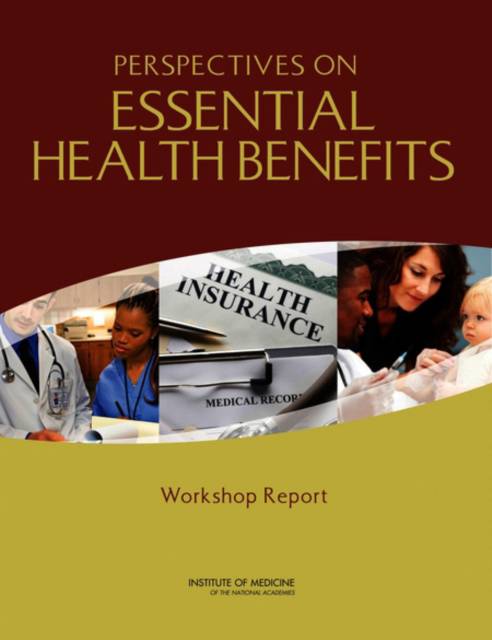
- Afhalen na 1 uur in een winkel met voorraad
- Gratis thuislevering in België vanaf € 30
- Ruim aanbod met 7 miljoen producten
- Afhalen na 1 uur in een winkel met voorraad
- Gratis thuislevering in België vanaf € 30
- Ruim aanbod met 7 miljoen producten
Perspectives on Essential Health Benefits
Workshop Report
Institute of Medicine, Board on Health Care Services, Committee on Defining and Revising an Essential Health BenefitsOmschrijving
The Patient Protection and Affordable Care Act (herein known as the Affordable Care Act [ACA]) was signed into law on March 23, 2010. Several provisions of the law went into effect in 2010 (including requirements to cover children up to age 26 and to prohibit insurance companies from denying coverage based on preexisting conditions for children). Other provisions will go into effect during 2014, including the requirement for all individuals to purchase health insurance.
In 2014, insurance purchasers will be allowed, but not obliged, to buy their coverage through newly established health insurance exchanges (HIEs)--marketplaces designed to make it easier for customers to comparison shop among plans and for low and moderate income individuals to obtain public subsidies to purchase private health insurance. The exchanges will offer a choice of private health plans, and all plans must include a standard core set of covered benefits, called essential health benefits (EHBs).
The Department of Health and Human Services requested that the Institute of Medicine (IOM) recommend criteria and methods for determining and updating the EHBs. In response, the IOM convened two workshops in 2011 where experts from federal and state government, as well as employers, insurers, providers, consumers, and health care researchers were asked to identify current methods for determining medical necessity, and share decision-making approaches to determining which benefits would be covered and other benefit design practices. Essential Health Benefits summarizes the presentations in this workshop. The committee's recommendations will be released in a subsequent report.
Specificaties
Betrokkenen
- Auteur(s):
- Uitgeverij:
Inhoud
- Aantal bladzijden:
- 182
- Taal:
- Engels
Eigenschappen
- Productcode (EAN):
- 9780309215435
- Verschijningsdatum:
- 10/02/2012
- Uitvoering:
- Paperback
- Formaat:
- Trade paperback (VS)
- Afmetingen:
- 216 mm x 279 mm

Alleen bij Standaard Boekhandel
Beoordelingen
We publiceren alleen reviews die voldoen aan de voorwaarden voor reviews. Bekijk onze voorwaarden voor reviews.











